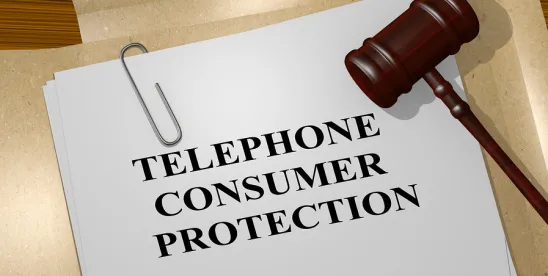The Eastern District of New York in Banks v. Solar, No. 17-CV-613 (LDH) (JO), 2018 U.S. Dist. LEXIS 128182 (E.D.N.Y. July 31, 2018), recently denied Defendant’s motion to dismiss Plaintiff’s putative class action alleging violations of the TCPA and New York Business Law Section 399-p (“NYGBL”). In doing so, the Solar Court ruled that plaintiff had adequately pled that defendant was vicariously liable for its purported agent because defendant’s statements could reasonably give the appearance that its agent was authorized to initiate calls to the plaintiff.
The Plaintiff in Solar brought action against Pro Custom Solar LLC (“Solar”) for violations of the TCPA by making two unsolicited calls to Plaintiff’s residential telephone line. When Plaintiff answered the calls, a prerecorded voice which identified itself as someone from Home Solar Solutions, asked a series of questions regarding home ownership and energy costs. At the conclusion of the prerecorded message, the calls were then transferred to a live representative from Advanced Energy Solutions and Plaintiff was informed that the calls “had been made in order to promote goods and services” of Solar.
To research the calls, Plaintiff then called Sunnova Energy Corporation (“Sunnova”), a company he believed was affiliated with Solar. During the call, a Sunnova representative confirmed Plaintiff’s belief that Sunnova and Solar were affiliated and that Sunnova works with Solar. The representative also informed Plaintiff that Sunnova uses a prerecorded telephone calls to seek new customers.
Subsequently, the Plaintiff placed two calls to Solar and asked the representative whether Solar promotes its goods and services by using prerecorded telephone calls. The Solar representative responded by stating “I think there is a robotic messages [sic] that reaches out to homeowners that might be inquiring or maybe interested in going solar.” Id at 2-3. During the second call, a Solar representative confirmed that the entity Plaintiff had called was indeed Solar and confirmed that Plaintiff’s description of the calls at issue were Solar’s operating service.
In its complaint, Plaintiff alleged that during the course of the calls, Sunnova confirmed that it “works with” Solar and that Sunnova stated that it “uses prerecorded telephone calls to seek new customers.” Plaintiff sought to hold Solar liable either directly or vicariously for the alleged TCPA violations. Solar argued that Plaintiff’s claims should be dismissed because Plaintiff failed to plead sufficiently that Solar initiated the calls for purposes of direct liability and that there was no foundation for vicarious liability.
The Court noted that Plaintiff failed to allege that Solar initiated the calls and that Plaintiff’s allegations “at most, allow for the inference that Sunnova rather than” Solar is liable under the TCPA.
Having determined that the complaint failed to state a claim for direct liability against Solar, the Court turned to the issue of vicarious liability and found that Plaintiff sufficiently plead vicarious liability under the apparent authority doctrine. In so ruling, the Court found that apparent authority “arises from the ‘written or spoken words or any other conduct of the principal which, reasonably interpreted causes [a] third person to believe that the principal consents to have [an] act done on his behalf by the person purporting to act for him.” Id at. 7.
The Court ruled that Plaintiff’s complaint sufficiently stated a claim for vicarious liability against Solar for the alleged violations of the TCPA and NYGBL by its purported agent because the Plaintiff alleged that: (1) at the conclusion of the recordings Plaintiff was transferred to a live representative of Advanced Energy Solutions that stated the calls were placed to “promote the goods and services” of Solar (2) Solar confirmed that Advanced Energy Solutions was its operating solutions and (3) a Solar’s representative stated “I think there is a robotic message [] that reaches out to homeowners that might be inquiring or maybe interested in going solar.” Id at 7.
Ultimately, the Court held that Solar’s “statements could reasonably give the appearance that Defendant’s statements could reasonably give the appearance that Defendant, the purported principal, authorized Advanced Energy Solutions, the purported agent, to initiate the Calls on its behalf.” Id. at 8
Thus, the Solar Court denied Solar’s motion to dismiss Plaintiff’s complaint, concluding that Plaintiff’s complaint sufficiently plead vicarious liability for the alleged violations of the TCPA by its purported agent, Sunnova.



 />i
/>i

